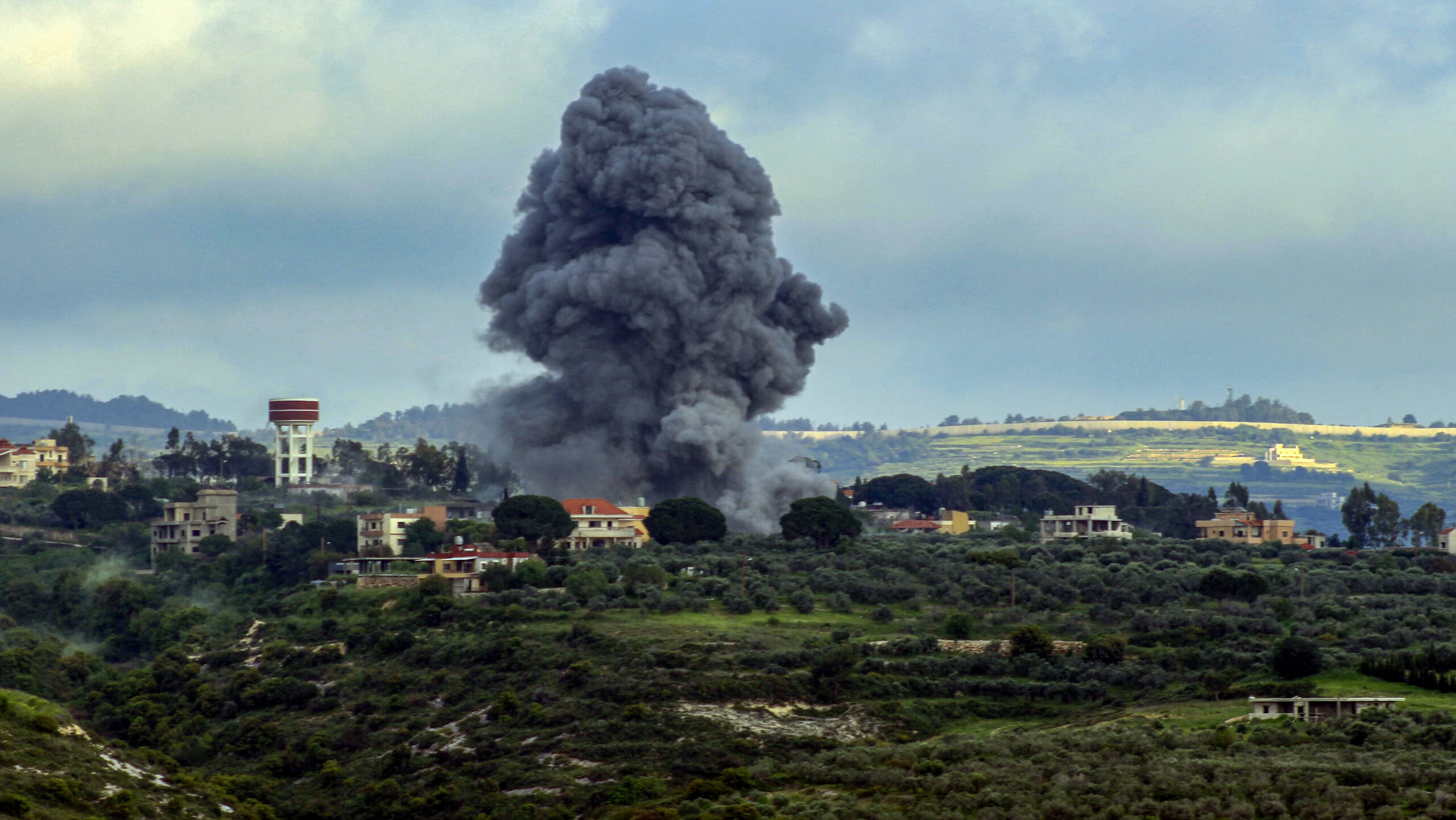Facing Economic, Political Struggles, Lebanon Might Not Survive All-Out War With Israel
After half a year of skirmishes between the Israeli army and the Lebanese militia Hizbullah, the possibility of a full-scale war is threatening to turn the precarious situation in Lebanon into a disaster
As skirmishes between the Israeli military and the Lebanese militia Hizbullah continue, the possibility of a full-scale war in Lebanon seems closer than ever. Since Oct. 8 of last year, when Hizbullah began firing rockets and artillery shells at Israel in support of the Hamas invasion, about 60 civilians and more than 300 fighters have been killed across both countries. The tense calm in Lebanon has been shaken by the Israeli strike on Iran’s consulate in Syria earlier this month and by yesterday’s Iranian aerial attack on Israel, with fears that any wrong turn could lead to an all-out war between Israel and Lebanon.
Lebanon has been through many conflicts on its soil, most of which have involved Israel. The two countries have officially been at war since the creation of the Jewish state in 1948, and they do not enjoy any diplomatic relations. The last total war between the Israeli military and Hizbullah took place in 2006.
Nearly 18 years since the last war, Lebanon finds itself in a very different situation. The country is suffering from one of the worst economic crises in any country since 1850, according to the World Bank. A caretaker government has ruled the country since the last parliamentary elections in May 2022. For the last year and a half, the Lebanese parliament has failed to elect a president, exacerbating the political vacuum in the country.
This instability, both political and economic, raises the question: if faced with a full-scale war, would Lebanon and its citizens survive?
Nicholas Blanford, nonresident senior fellow with the Atlantic Council’s Middle East Programs, told The Media Line that an escalation of the current tensions could lead to one of two scenarios.
One scenario involves a limited war, which would mean Israeli troops entering Lebanon but staying south of the Litani River, about 12 miles north of the border with Israel. The Israeli military might destroy Lebanese border villages in order to create a security zone but would not destroy Lebanese infrastructure, Blanford said.
“Of course, they can always start with this limited aim, but if the Israelis suffer a lot of casualties, they can think of escalating the war to finish Hizbullah once and for all,” Blanford continued. “That would be a highly disruptive war on both sides of the borders, and it could go regional, with a level of destruction in Israel that hasn’t been seen since 1948.”
David Wood, senior Lebanon analyst for the International Crisis Group, told The Media Line that Hizbullah’s actions suggest that the group does not want a full-scale war.
“In the past months, Hizbullah has been very disciplined in absorbing attacks from Israel and always retaliating, but not at the same level, a certain lower level of attack,” Wood said.
He explained that an all-out war would be a disaster for Lebanon, especially given its economic troubles.
“The fact that many of the displaced from the southern villages have decided to return to their houses is a powerful indication that shows that the nationwide impact of the economic situation is imposing a burden that the Lebanese community cannot really bear,” he said.
According to the United Nations, around 75% of the Lebanese population already live under the poverty line. The country’s bank system has been deteriorating for years, with investors pulling out in order to avoid losing more money.
Both analysts agree that Lebanon would struggle to survive a war and rebuild in its aftermath. “The level of destruction can be huge, and it is almost impossible to think of a reconstruction process afterward in Lebanon,” Blanford said.
“It is unclear now who would come in to reconstruct Lebanon,” Wood said. “Iran and its economy have been suffering many years of sanctions, and it might not have the same resources to reconstruct Lebanon. And the Gulf states, in particular Saudi Arabia, are much more hesitant to fund anything in the country.”
According to Blanford, one of the first casualties of a full-scale war would likely be Hizbullah’s popularity. “The majority of people are already against what they are doing because they see them as dragging Lebanon into a war for the sake of a Palestinian organization fighting its own battle very far away,” Blanford said.
Wood said that it remains to be seen how a war between Lebanon and Israel would affect Hizbullah’s reputation. “It all depends on what would happen at the battlefield since there was massive support around the Arab world for what Hizbullah did in 2006,” he said.


